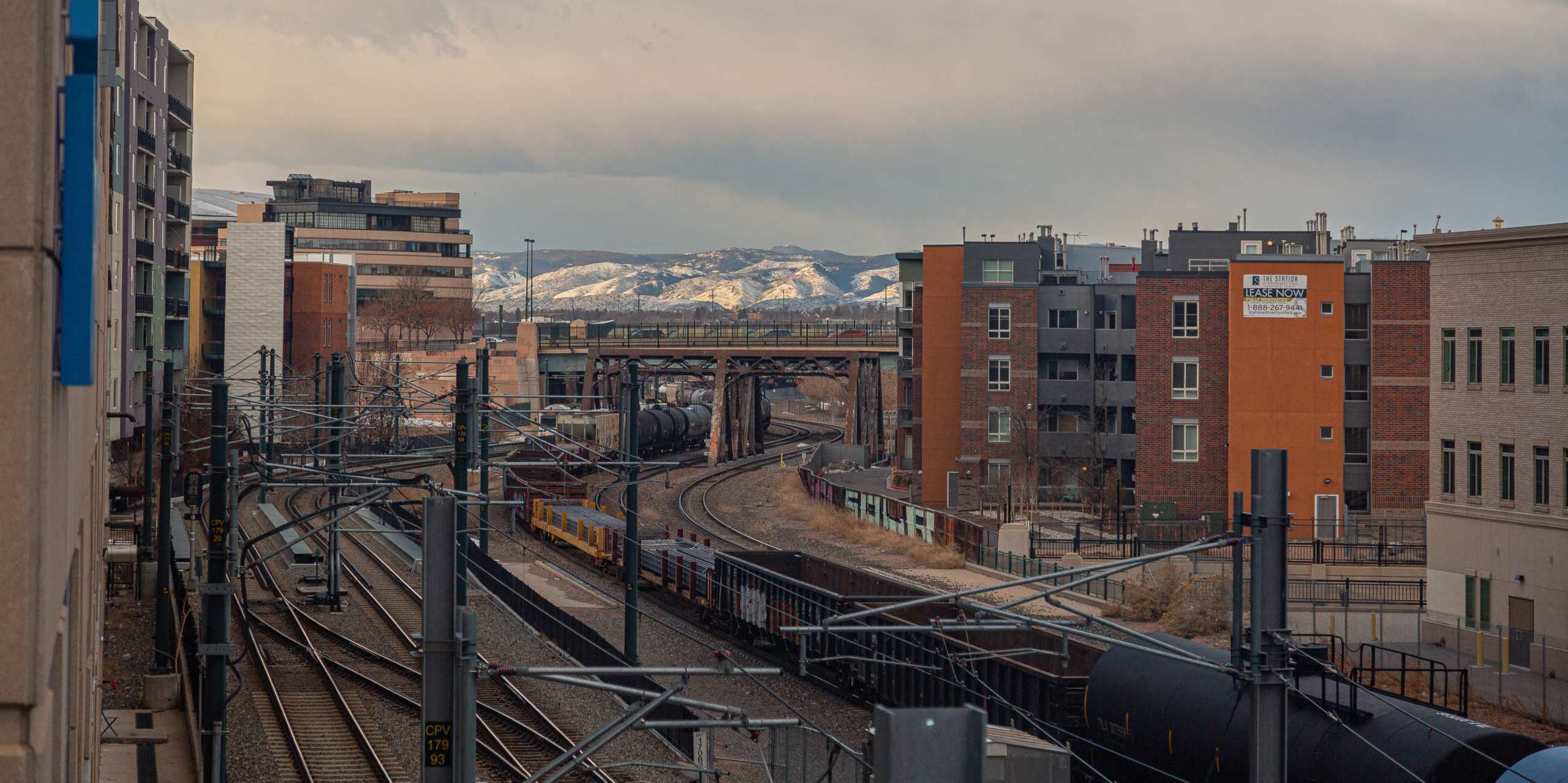Colorado Democratic Sens. Michael Bennet and John Hickenlooper are staunch supporters of President Biden’s $1.75 trillion domestic spending bill, which includes major investments to fight climate change and strengthen the country’s social safety net, but the legislation is still facing an uphill battle in the Senate that could potentially drag into the new year.
The Biden administration made some significant progress after months of delays by signing the $1.2 trillion bipartisan infrastructure bill into law and getting the revised spending plan through the House within the past couple of weeks. But rising COVID-19 cases, record inflation numbers, and low approval ratings are putting a damper on the Democrats’ recent legislative victories in Washington.
And Republicans are taking notice, hoping to bolster their case for taking back the House and Senate in next year’s midterm elections. Yet, when the House passed the bipartisan infrastructure bill, a total of 13 Republicans joined their Democratic colleagues across the aisle. Six Democrats, all of them part of the party’s progressive wing, voted against the bill.
Colorado’s House lawmakers voted as expected along party lines, with all three Republicans decrying the final tally of 228-206. Congresswoman Lauren Boebert (R-CO) blamed RINOS – slang for Republicans in name only – for passing the “wasteful” infrastructure bill.
Rep. Doug Lamborn (R-CO) declared that a vote in favor of the infrastructure bill is a vote for the Democrat’s “bloated socialist spending bill.” He added that the country “cannot continue this reckless spending spree” as inflation reached a 30 year high of 6.2% in October.
Congressman Ken Buck (R-CO) simply stated that the bipartisan infrastructure bill is “bad for our country.” He further claimed that it sets up the Democrats’ “radical reconciliation package, which spends another $1.5 trillion dollars, grants mass amnesty to illegal immigrants, implements green new deal policies, and gives tax breaks to NYC billionaires.”
On the Democratic side, Rep. Joe Neguse (D-CO), who played a crucial role in getting the bill through the House, touted the legislation’s inclusion of climate-related measures, including upgrades to the power grid.
“As communities across Colorado face more frequent and more severe climate-related weather events — such as the record-setting wildfires and terrible flash flooding we’ve witnessed this past year — it’s more clear than ever that we need to make major investments in our lands, our forests and our communities,” Neguse said in a statement on November 6. “Through the Bipartisan Infrastructure Investment and Jobs Act which passed the House last night, we are delivering on several of these key priorities for Colorado.”
Based on projections from Colorado Democrats, the state is set to receive $3.7 billion for highway improvements; $225 million for bridge repairs; $916 million for public transportation; $688 million to improve water infrastructure; $432 million for airport improvements; $100 million to provide broadband access; $57 million to expand the state’s electric vehicle charging networks; and $35 million for wildfire management.
Members of the Biden administration will be traveling from coast to coast to promote the real-world impact of both legislative bills. Last week, the president himself used the backdrop of an old, unsafe bridge in Woodstock, New Hampshire to sell the infrastructure bill.
“Clean water, access to the internet, rebuilding bridges — everything in this bill matters to the individual lives of real people. This is not something abstract,” Biden said. “When you see these projects starting in your hometown, I want you to feel what I feel: pride,” he said.
Last week’s House vote on Biden’s domestic spending plan, also known as the Build Back Better Act, was mostly along party lines, with only one Democrat joining all Republicans in objecting to the bill. That Democrat was Maine Congressman Jared Golden.
Colorado’s Ed Pearlmutter (D-CO) described the president’s domestic spending plan as a “once-in-a-generation piece of legislation” to create jobs and take real action in the fight against climate change.
“Earlier this month, Congress passed the bipartisan infrastructure bill to invest in the hard assets of this country – roads, bridges, public transit, broadband, and waterways. Today, the House passed a complimentary bill to invest in Americans – the human assets of our country including children, families, and workers,” he said in a statement.
As Build Back Better heads to the Senate, it is expected to undergo further changes. Moderate Sens. Kyrsten Sinema (D-AZ) and Joe Manchin (D-WV) have each expressed concerns about the House version of the legislation. Manchin has voiced his opposition to a provision that would provide four weeks of paid family and medical leave for most American workers.
With a 50-50 split in the Senate, Democrats need all members in agreement. Using the budget reconciliation process, 50 votes would be enough to pass the bill, instead of the 60 needed for most legislation.
Bennet, Colorado’s senior senator, celebrated the House passing BBB in a tweet on Friday. “It has been a long time since the American people have seen Washington working for them. Now — from tax cuts for families and workers to historic climate action — Americans will see how our work can make a difference,” he said.
Among the provisions included in the $1.75 trillion package are $550 billion to address climate change – the largest such investment in American history; child care and universal pre-K; a one-year extension of the child tax credit; and housing assistance.
The Congressional Budget Office found the bill would add $367 billion to the federal deficit over the next decade, “not counting any additional revenue that may be generated by additional funding for tax enforcement.” But many Democrats and Treasury Secretary Janet Yellen argue that when those revenues are taken into account, the measure would pay for itself.
It is unclear how long it might take senators to overcome their disagreements and finalize the bill. Once that is done, the bill would be sent back to the House for a final vote before heading to President Biden’s desk.



